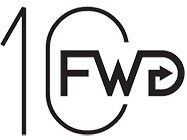
24 May What You Can Learn from Facebook’s Audience Overlap Tool
[ad_1]
You should never pass up the opportunity for more data and analytics when it comes to any type of marketing, Facebook Ads included.
Almost all of Facebook’s analytics tools have come with some great use cases for each tool, providing a ton of new information and insight we can glean from them.
Facebook’s audience overlap tool is no exception, and the information it can provide to us regarding the audiences we’re targeting for our Facebook Ads is virtual gold.
If you aren’t using Facebook’s Audience Overlap Tool yet, we’ll show you how, and the types of valuable information you can get from it.
What is Facebook’s Audience Overlap Tool
Facebook’s Audience Overlap Tool was quietly released earlier this year in January, it allows us to examine our audiences and how audience members overlap between them. It’s different than Facebook’s Audience Insights.
You can find Facebook’s audience overlap tool on Facebook’s Ads Manager. At your Ads managers, click on the Tools drop-down menu and choose “Audience.”

Once there, select the audiences that you want to compare, click on the “Actions” tab, and choose “Show Audience Overlap.”

You can select multiple audiences to compare (though you’ll only be able to compare one against the others at a time), and you’ll be shown the number and percentage of overlapping members between them.

4 Uses for Facebook’s Audience Overlap Tool
Facebook’s audience overlap tool, most simply, shows us when our different audiences overlap. To make the most out of this tool, we’re going to look at four important uses of Facebook’s audience overlap tool and some solutions for problems that might get flagged for us in the process.
1. Evaluate Lookalike Audience vs. The Original Custom Audience
When you create your lookalike audience, you want it to have similar users to the custom audience you’ve modeled it after. This can help you to run tried-and-true campaigns that have been tested on your custom audience with a new, relevant audience who would be likely to be receptive to it. That being said, you don’t want your lookalike audience to be so similar to your custom audience that they’re nearly identical, containing too many of the same users.

This overlap shows a comparison between a website from a custom audience and its lookalike audience.
While you don’t want your lookalike audience to be identical to your custom audience, you do want to see some similarities—if you’re experiencing low conversions on already-tested ads and have low similarities between the custom audience and its lookalike audience, it may not be a reliable match.
Lookalike audiences should be similar to a custom audience, but you can add the criteria that they haven’t liked you on Facebook; this can help reduce overlap. With lookalike audiences having a big use case of connecting to a relevant audience who isn’t yet following you, this is a good targeting criterion to implement.
As long as your overlap amount is approximately 30% or less, you’re still in the clear; if it’s more than that, you’ll want to take a look at your targeting.
2. Compare Lookalike Audiences Against Each Other
Let’s say you have three different custom audience lists—one is your email list, one is your custom audience from a website list, and one is your high value, made-past-purchases list. You can create lookalike audiences off all three of these custom audiences, forming three different lookalike audiences.

Having small overlap between lookalike audiences ensures you’re reaching different audience members and that your niche campaigns could be more successful.
Here’s the thing. While there may not be a lot of overlap between the original custom audience and its lookalike audience, there might be a ton of overlap between your varied lookalike audiences. Because of this, you not only want to check a lookalike audience against its custom audience but also against all your other lookalike audiences. There are only many users out there, after all; though Facebook’s total user base seems like a big number, your target audience likely only makes up a relatively small percentage of it.
If you notice a lot of overlap, try creating niche custom audiences that are interested in different use cases of your product and create lookalike audiences off of those; this could help diversify your lookalike audiences and help you share more relevant ads to the right people.
3. Check for Audience Overlap amongst Niche Audiences
The name of the tool is the “audience overlap tool,” after all, so it only makes sense to use it for it’s designated purpose. Using this tool can help you determine how much overlap you have between different audiences.

This comparison shows a small niche audience compared to a larger but very different niche, with zero overlap.
If you’re targeting niches and sub-niches within your audience, this can be particularly helpful. While plenty of businesses will run multiple types of campaigns at a time, it doesn’t make sense to run too many campaigns that are competing for the same audience. Check your different audiences and evaluate for overlap and make sure that you’re not targeting too many members of the same audience in different campaigns at once.
If you are experiencing too much audience overlap, either focus on one type of campaign and one audience at a time, or try to narrow your targeting more.
4. Compare Site Visitors with Your Email List
With Facebook’s audience overlap tool, you can compare all your different audiences. This means you can compare the custom audience based on your email list with the custom audience of your site visitors.

This comparison shows a custom audience from an email list (above) and visitors within the past thirty days (in green). There is a 55% overlap.
This tells you how many of your site visitors are also email subscribers. This is an interesting metric that can give you insight into how your Facebook visitors are lining up as email subscribers. If you’re seeing massive gains in traffic but not seeing those audience members reflected in an updated custom audience from your email list, it’s a sign that more emphasis could go into lead capture and email subscription efforts. Email marketing—and having an email list—is an essential part of online marketing, so being able to evaluate your list growth rate from another angle is always a plus.
Final Thoughts
By being able to see how our audiences are overlapping, we can get better insight into our campaigns and their results, increasing the success of both in the process. Ultimately, this will boost the success of your ads while keeping your cost down by preventing you from targeting the same audience with too-similar ads. Targeting is perhaps the most complicated aspect of whether or not your campaigns will succeed on Facebook Ads, and this audience overlap tool can give us some additional insight behind the emerald curtain.
What do you think? How do you use Facebook’s Audience Overlap Tool? Which use for it do you think is the most helpful? Leave us a comment and let us know!
[ad_2]
Source link
Social Media Agency, Social Media, Digital Marketing, Digital Marketing Agency, Search Engine Marketing, SEO, digital marketing agency dubai, video content marketing, crossfit marketing dubai, video marketing dubai, digital marketing agency abu dhabi, facebook marketing dubai, facebook marketing abu dhabi, digital marketing agencies in dubai, social media agency, content marketing dubai, content strategy dubai, branding dubai

